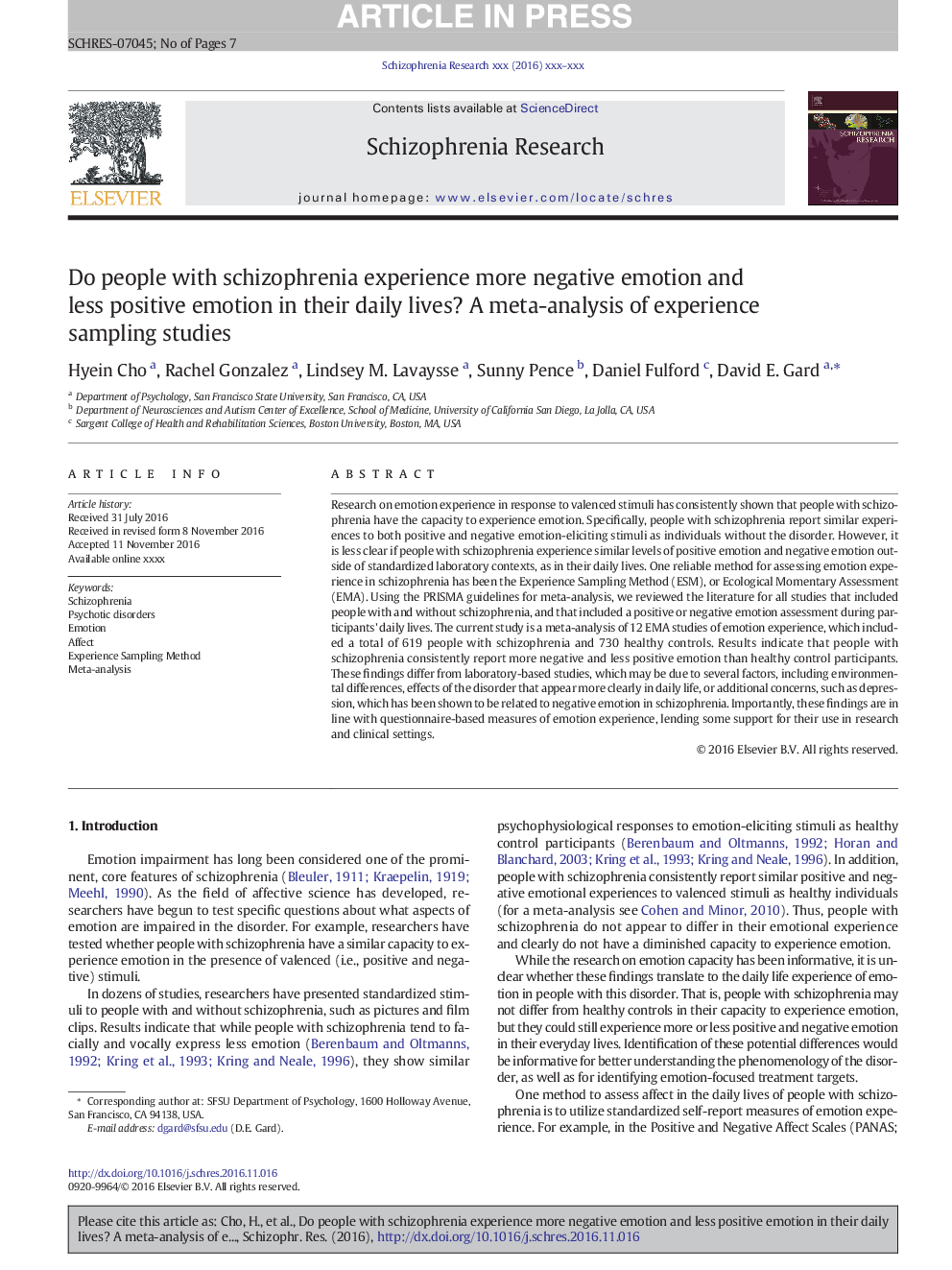ترجمه فارسی عنوان مقاله
آیا افراد مبتلا به اسکیزوفرنیا احساسات منفی و احساسات مثبت کمتر در زندگی روزمره خود را تجربه می کنند؟ یک متا آنالیز مطالعات نمونه گیری تجربه
عنوان انگلیسی
Do people with schizophrenia experience more negative emotion and less positive emotion in their daily lives? A meta-analysis of experience sampling studies
| کد مقاله | سال انتشار | تعداد صفحات مقاله انگلیسی |
|---|---|---|
| 126812 | 2017 | 7 صفحه PDF |
منبع

Publisher : Elsevier - Science Direct (الزویر - ساینس دایرکت)
Journal : Schizophrenia Research, Volume 183, May 2017, Pages 49-55
ترجمه کلمات کلیدی
جنون جوانی، اختلالات روان پریشی، هیجانی، تاثیر می گذارد، روش نمونه گیری تجربه، متاآنالیز،
کلمات کلیدی انگلیسی
Schizophrenia; Psychotic disorders; Emotion; Affect; Experience Sampling Method; Meta-analysis;

